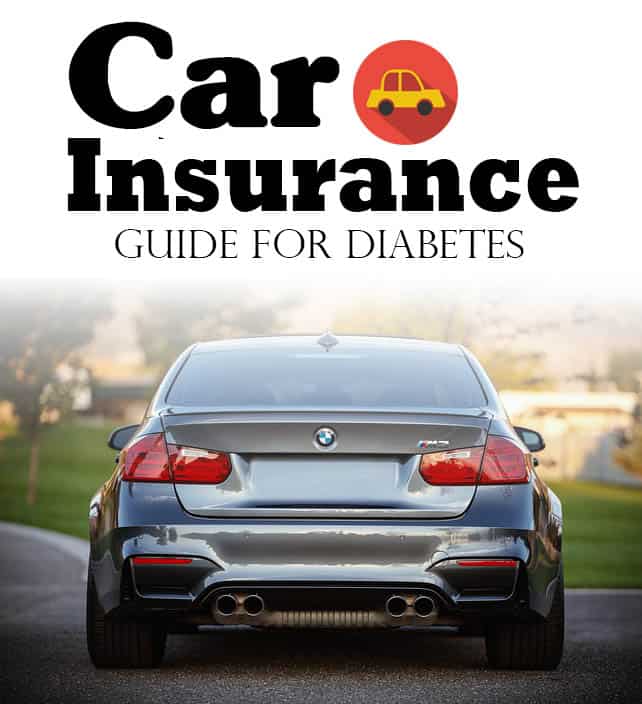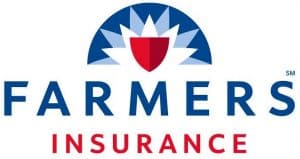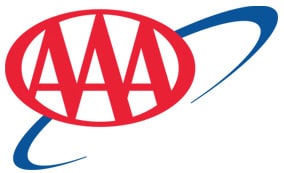
Driving has become an essential part of life in the United States as it allows individuals to go to work or school, and run many daily necessary errands. However, almost all states legally require that drivers have car insurance. If you are wondering about how diabetes may affect your eligibility of obtaining a driving license and impact on your car insurance policy rates, this article will answer these questions:
Contents
- Driver License Eligibility for Individuals with Diabetes
- Disclose or Not to Disclose About Your Medical Conditions?
- Driving Tips If You Have Diabetes
- Which Car Insurances Do You Need?
- Top 10 Insurance Companies to Consider
- Can I Drive Without Insurance?
- Alternative to Auto Insurance?
- Factors that Increase Your Coverage Payment and Premium
- How Can I Save on Auto Insurance?
Driver License Eligibility for Individuals with Diabetes
In the United States, each state has its own special licensing rules regarding medical conditions concerning diabetes. Some states implement these rules to all drivers with diabetes while others only apply them to diabetes individuals who take various medications such as insulin or exhibit symptoms such as:
- vision problems (such as retinopathy)
- loss of consciousness
- seizures
- low blood sugar (hypoglycemia)
- foot problems (such as neuropathy)
As a quick reference, here is a compilation list of the application process for each state in alphabetical order. For further detailed information, it is highly recommended that you should contact your local Department of Motor Vehicle (DMV) for the most update application process for diabetes patients.
[accordions id="1344"]
List of states below:
First-time applicants will be asked two medical condition related questions on their applications. The first question is whether the applicants have any medical condition that affects their ability to drive safely. Diabetes is included in a list of these conditions. The second question is whether the applicants are being treated for the listed conditions. As a diabetic individual, you will be required to have a medical examination to proof that you have to ability to drive safely. In the license renewing process, drivers will not be asked any medical questions.
All applicants must answer questions about physical and mental disabilities. Alaska Admin. The application asks the applicants whether they have any physical impairment. If yes, the applicants must describe the disability. The second question asks the applicants have suffered from heart trouble, seizures, fainting, dizzy spells, and/or loss of consciousness in previous 5 years. If an applicant answers "Yes" to this question, the department has the rights to require a physician's statement before issuing a license.
The application form asks if applicants have a medical condition that may affect their abilities to operate a motor vehicle safely. If the applicants answer "Yes" to the question, they may be required to have a medical examination report completed by their physician before approval by the department.
The application does not have any questions concerning the applicants’ medical conditions.
All applicants (whether new or renewal) are required to answer questions about medical conditions. There is a question that asks whether the applicants have had conditions within the last five years that affect their ability to operate a motor vehicle safely. One of the conditions specifically listed is diabetes. Drivers who answer "Yes" to this question are required to have their physicians complete a medical evaluation form. Applicants will also need to review their driver's license application with a field technician to determine whether a review of the application by the Driver Safety Branch is necessary.
All applicants must answer a question about medical conditions when they complete the license application. The application asks whether the applicants have diabetes or any other condition in the last 2 years that would affect their abilities to drive safely. Any individuals who answer yes to this question must submit a medical evaluation to demonstrate that they can handle driving without any difficulty.
All applicants (first time or renewal applicants) must sign a medical certification statement that confirms the fact that they do not have any health ailments or conditions that will prevent them from driving safely. In the application, there is simple true/false checkbox list for applicants to confirm what medical conditions they have.
For more information I recommend reading the following articles:
All applicants (both first-time and renewal applicants) are asked whether they have any physical or mental ailments that will affect their abilities to handle a motor vehicle safely. Individuals who answer "yes" to this question will be asked a series of questions to determine whether a medical examination is needed before decision is made on their applications.
All applicants are asked whether they ever have insulin-dependent diabetes and whether they have experienced seizures, loss of consciousness, or any other mental or physical conditions that would impair their ability to drive. Any applicants who answer “yes” must have a medical and eye Report completed by a physician to prove that they are physically fit to drive a motor vehicle safely.
Applicants are not asked specific questions about their medical condition in the applications. Instead, they are asked to list all physical or mental problems and disabilities that may affect their driving ability. Applicants with epilepsy, dizziness, blackouts, or any other medical conditions that can impair driving will need to complete a medical evaluation process before the DMV can make a decision on their application. Also, individuals who state that they suffer from complications of diabetes will need a medical condition check by a physician. Afterward, the case may be referred to the state's medical advisory board for approval.
First-time applicants are asked if they have any physical or mental problems or disabilities that can affect their abilities to drive safely. Any applicants who state that they have a condition that can affect their driving skills will be required to obtain a statement from their physicians confirming that they have the physical and mental capacity to handle a motor vehicle safely.
The license application (both first-time and renewal) asks if the applicants have ever suffered from any physical or mental disability that can affect his or her ability to operate a motor vehicle safely. Individuals with diabetes are required to answer "yes" to this question as diabetes is listed as one of the medical conditions. In such cases, the applicants must submit a medical evaluation form written and signed by their physician to confirm that they are physically and mentally fit to handle a motor vehicle safely.
The license application (both first-time and renewal) asks if the applicants whether they are affected by any physical or mental conditions that can trigger momentary or prolonged lapses in consciousness or control. An example of such a condition listed is insulin dependent diabetes. If answer “Yes”, the applicants must then certify that they are physically capable of operating a vehicle safely. Applicants answering "yes" to the first question but are unable to verify that they are physically capable, then they will need to fill out a medical evaluation form to prove that they are physically and mentally fit to handle a motor vehicle safely.
The license application (both first-time and renewal) asks two questions:
- If the applicants have any conditions that can result in temporary loss of consciousness and
- If the applicants have any mental or physical condition that might interfere with safe driving.
Individuals who answer “Yes” to either of these two questions will need to have their physicians submit medical reports and sign the medical agreement contained in that report to prove that they are fit to drive a vehicle safely.
The license application (both first-time and renewal) asks:
- If the applicants are prone to fainting spells or seizures,
- If the applicants have a condition that renders them to appear intoxicated
- If the applicants have any physical or mental disability that makes them unable to drive safely.
Individuals answering "yes" to the first question must have their physicians submit medical evaluations to prove that they can drive safely. Applicants answering "yes" to the second question will be interviewed by licensing agency personnel. Based on the result, they may be granted eligibility to apply for a driver license. However if the agency personnel have any doubt, they have the right to request the applicants to obtain a physician's medical evaluation to prove that they are physically and mentally fit to handle a motor vehicle safely.
The driver's license application (both first-time and renewal) asks the applicants whether they have any mental or physical disabilities that would affect their driving abilities. If the applicants answer “yes” to this question, they will be interviewed by agency personnel to determine the severity of the disability and the effects on driving. Depending on the answers, the applicants may then be required to have a medical examination performed by a physician to prove that they can handle a motor vehicle safely.
The driver's license application (both first-time and renewal) asks the applicants:
- Whether they have any mental or physical conditions which may make it difficult to operate a motor vehicle and
- Whether they have had any loss of consciousness or seizures within the last 6 months. If an applicant answers yes to either of these questions, he or she is required to have a medical examination and evaluation performed by a physician to prove that they are physically able to drive safely.
The driver's license application (both first-time and renewal) asks the applicants:
- Whether they have any physical or mental conditions which can affect their driving abilities
- Whether they have had a seizure or blackout within the previous 90 days, and
- Whether they have had a blackout within the previous 3 years.
If the applicants answer “Yes” to any of these questions, they are required to have a medical examination and evaluation performed by a physician to prove that they are able to handle a motor vehicle safely.
The driver's license application (both first-time and renewal) asks the applicants:
- Whether they have any mental or physical conditions that could impair their abilities to operate a motor vehicle, and
- Whether the applicants have experienced a loss of consciousness other than normal sleep.
If the applicants answer yes to either question, they will be required to have a medical evaluation form completed by their physicians to prove that they are capable of driving safely.
The driver's license application (both first-time and renewal) presents a list of conditions and asks the applicants whether they have any of these disabilities and/or conditions. Diabetes, blackouts, and loss of consciousness are some of the listed conditions. If the applicants answer yes to this question, they will be required to have a medical evaluation form completed by their physicians to prove that they are physically fit to handle a motor vehicle safely.
I recommend these informative articles as well:
The driver's license application (both first-time and renewal) asks the applicants whether they have any physical or mental condition that may affect their ability to drive properly. If the applicants answer “yes” to this question, they are required to have a medical evaluation form completed by their physicians and complete and return a health questionnaire. All drivers who report that they have insulin-dependent diabetes will also be required to have an evaluation by the Medical Advisory Board.
The driver's license application (both first-time and renewal) asks the applicants
- Whether they have any medical condition that may affect their abilities to operate a motor vehicle safely, and
- Whether they have been taking any medications that can affect their abilities to operate a motor vehicle safely.
If the applicants answer “yes” to either question, they will be required to submit a Medical Evaluation Form to prove their competence in handling a motor vehicle safely.
The driver's license application (both first-time and renewal) asks the applicants:
- Whether they have had any physical or mental conditions that affected their abilities to drive safely within last 6 months, and
- Whether they have had fainting spells, blackouts, seizures, or episodes of loss of consciousness within the past 6 months.
If the applicants answer “yes” to any of these questions, they will be required to have a physician complete an examination and submit a medical evaluation form before he or she may be licensed.
The driver's license application (both first-time and renewal) asks the applicants whether they have any medical conditions that may impair their abilities to operate a motor vehicle safely. Applicants also are questioned:
- Whether they use insulin, and
- Whether they use any medications to treat loss of consciousness or voluntary control
If the applicants answer “yes” to any of these questions, they will be required to have a physician complete a medical evaluation form to prove that they are competent to drive safely.
The driver's license application asks:
- Whether the applicants are currently being treated for diabetes and
- Whether they are currently is taking a shot or pill for treatment.
The application does not ask any specific questions about diabetes but asks whether the applicants have any physical defect that would interfere with their abilities to operate a motor vehicle safely. If the applicants answer “yes” to this question, they will be required to have a physician complete a medical evaluation form to prove that they are physically competent to drive safely.
There are no questions regarding diabetes specifically. However, the driver's license application (both first-time and renewal) asks the applicants whether they have experienced various conditions such as convulsions, epilepsy, blackouts, paralysis, heart attack, heart disease, stroke, or other medical conditions within the previous 6 months. If the applicants answer “yes” to any of these questions, they will be required to be interviewed and asked to demonstrate their abilities to operate a motor vehicle safely.
The driver's license application (both first-time and renewal) asks the applicants:
- Whether they suffer from any chronic or potentially chronic condition that may cause loss of consciousness or control and
- Whether they have any physical or mental ailments or conditions that may impair their abilities maintain control of a vehicle on the highway. If the applicants answer “yes” to either question, they may be required to undergo a medical evaluation to prove that they are fit to handle a motor vehicle safely.
The driver's license application (both first-time and renewal) asks the applicants about the loss of consciousness from diabetes or other conditions. The application also asks:
- Whether the applicants have any conditions that would affect their abilities to operate a motor vehicle and
- Whether their conditions have worsened or changed.
If the individuals answer “yes” to one of these questions, they are required to have a physician complete a medical evaluation form to prove that they are physically well to drive safely.
The application does not have specific questions regarding diabetes and diabetes symptoms. However, the driver's license application (both first-time and renewal) asks whether the applicants have any disabilities, illnesses, missing extremities, or takes any medication that can affect their driving abilities. If the individuals answer “yes” to this question, they must describe the disabilities, illnesses, or medications they are currently taking. At the same time, they may be required to have a physician complete a physician's report. If such documentation is required, the paperwork must be submitted to the licensing agency within 30 days of the examination. Aside from the verification, diabetic individuals may choose to indicate their medical status on their driver's licenses. If you decide on this option, then you must instruct those wishing when you complete a Confidential Physician's Report (Form DLD-7).
The license application does not contain any questions concerning about medical conditions pertaining to diabetes.
A driver's license application (both first-time and renewal) asks the applicants whether they suffer from any mental, physical, or convulsive disorder. If the individuals answer yes to this question, they may be required to have a physician complete a medical evaluation form. However, diabetic individuals do not automatically need to complete a medical evaluation form unless they have suffered from episodes of loss of consciousness.
The driver's license application (both first-time and renewal) asks the applicants whether they have diabetes. If the individuals answer “yes” to this question, they will be required to have a physician complete a medical report form to prove that they can drive safely.
The applicants must report if they have ever received treatment or taken medication for a "condition which causes unconsciousness or unawareness." Although diabetes is not specifically listed, convulsive disorder, epilepsy, fainting or dizzy spells are listed. If you suffer from hypoglycemia symptoms, you will need to check off seizures, or fainting spells. Renewal applicants also present the same list of conditions and asks if they have any conditions or symptoms that have worsened since the issuance of their last licenses. If the individuals answer “yes” to this question, they must have their physicians complete Form MV-44, the Physician's Statement for Medical Review Unit to prove that the applicants are physically well to handle a motor vehicle safely.
The driver's license application (both first-time and renewal) asks the applicants whether they have ever suffered from diabetes (along with certain other medical conditions). All applicants who indicate that they have diabetes must have medical evaluation forms completed by their physicians to prove that they are competent to drive a vehicle safely.
Both first-time and renewal driver's license applications asks the applicants to describe any physical or mental conditions that they have that may impair their driving ability. The applicants are also specifically questioned whether they have insulin-dependent diabetes or ever has suffered from any lapse of consciousness. These questions are also on the renewal form. Note that the renewal application does not specifically ask whether the applicants have diabetes. All individuals who have had episodes of loss of consciousness within the last 12 months must have medical evaluation forms signed by their physicians. Other individuals with diabetes also may be required to have such assessments if their condition impairs safe driving.
The driver's license application (both first-time and renewal) asks the applicants:
- Whether they are “currently or ever have been afflicted with epilepsy”, or
- Whether they are “currently suffering from any physical or mental disability or disease and, if so, the nature and severity of the disability or disease”.
Applicants who answer yes to either of these questions may be required to have medical evaluation forms completed by their physicians to prove that they are physically well to drive safely.
First-time applicants for driver's licenses are required to complete a medical questionnaire that asks whether they have diabetes (along with a list of other medical conditions). They also are asked if they have any other physical or mental conditions that could affect with their abilities to operate a motor vehicle safely. Individuals who answer “yes” to either of these questions must have a medical evaluation form completed by his or her physician to prove that they are physically fit to handle a motor vehicle safely. License renewal applicants will not be asked questions about their medical conditions about diabetes.
The driver's license application (both first-time and renewal) asks the applicants whether they have had any physical or mental conditions or impairments that can affect their abilities to drive safely. If yes, the applicants are asked to identify the conditions or disabilities, and describe the impact on their abilities to drive safely. If the applicants answer “yes” to this question, they will be required to have a medical evaluation form completed.
All first-time learner permit applicants must have a medical evaluation by a physician. The physician must complete a medical evaluation form and must specify whether the individuals suffer from any number of conditions, including uncontrolled diabetes. The initial license application asks the applicants whether they have any conditions on the list of conditions. People who have any of these disabilities or conditions may be required to submit additional medical documentation to prove that they can drive safely. Renewal applicants will not be asked any questions about medical conditions.
The driver’s license application (both first-time and renewal) asks the applicants whether they have any conditions that can affect their abilities to operate a motor vehicle safely. Applicants who answer “Yes” to this question must supply medical evaluation forms filled out by their physicians to prove that they are fully capable of driving safely.
The driver's license application (both first-time and renewal) asks the applicants whether they have any physical or mental conditions that may prevent them from safely operating a motor vehicle. At the same time, the application form asks:
- If the applicants have experienced an episode of loss of consciousness, muscular control, or seizure, within the last 6 months and
- If a doctor has advised the applicants against driving or suggested driving with restrictions for certain duration of time.
Individuals who answer yes to either of these questions must provide medical evaluation forms filled out by their physicians to prove that they are physically and mentally capable of handling a motor vehicle safely. The license application also asks whether the applicants wish to have a medical symbol placed on their licenses and license plates to alert law enforcement and emergency personnel to the presence of a medical condition. If the applicants answer yes, they must give the DMV details of their conditions so that they can input the information on their database.
The driver's license application (both first-time and renewal) asks the applicants whether they have experienced any epileptic episodes, convulsions, seizures, or blackouts within the previous 12 months. If the individuals answer “Yes” to this question, they must give the exact date of the last episode and explain the details of the incident. At the same time, they must provide a medical statement filled out by their physicians to prove that they are physically and mentally fit to handle a motor vehicle safely.
The driver's license application (both first-time and renewal) asks the applicants whether they currently have or are being treated for any physical and/or mental conditions that can interfere with their abilities to drive safely. Those who answer “Yes” to this question must describe their conditions and explain their symptoms. Also, they must have medical evaluation forms filled out by their physicians to prove that they are physically and mentally fit to drive.
Both the first time and renewal application forms asks a series of health-related questions:
- Whether the applicants have been diagnosed or treated for a condition that may affect their ability to operate a motor vehicle safely within last 3 years
- Whether the applicants have insulin-treated diabetes within last 3 years
- Whether the applicants ever has experienced a seizure, convulsion, or episode of loss of consciousness within last 3 years.
If individuals answer “yes” to these questions, a medical evaluation by a physician will be needed to prove that the applicants are capable of handling a motor vehicle safely.
The driver's license application (both first time and renewal) provides a list of conditions and asks the applicants whether they have any of these conditions. Diabetes is listed as one of the conditions. Applicants who answer "Yes" to this question must have a medical evaluation form filled out by their physician to prove that they are physically and mentally capable of handling a motor vehicle safely.
The driver's license application (both first time and renewal) asks the applicants whether they have any physical or mental condition that can affect their abilities to operate a motor vehicle safely. Applicants who answer "Yes" to this question may need to have a medical evaluation form filled out by their physician to prove that they are physically and mentally fit to drive safely.
The driver's license application asks applicants a series of health-related questions:
- Whether they have any physical or mental condition that requires them to take medication
- Whether the applicants have ever had a blackout, seizure episode, or loss of consciousness
- Whether the applicants have a physical condition that requires them to use any specialized equipment to drive.
For the individuals that answer “Yes” to any of these questions, they must have medical evaluation forms filled out by their physicians to prove that they are physically and mentally capable of handling a motor vehicle safely.
The application (both first-time and renewal) asks applicants whether they have a mental or physical condition, or take any medication that can impair their driving ability. Applicants who answer “yes” to this question must have medical evaluation forms filled out by their physicians. They are also questioned if they have experienced loss of consciousness within the recent past. If the answer is yes, the licensing agency may require a medical examination.
The driver's license application (both first-time and renewal) asks applicants whether they have experienced a number of conditions (the conditions include seizure, loss of consciousness, any physical condition requiring special equipment to drive, and any visual or medical condition that affects the applicants’ ability to drive safely). Any individuals who answer “Yes” to this question must submit with his or her application a letter explaining their condition in detail. Afterward, the DMV will decide whether the applicants need further prove of their physical and mental wellness from a doctor examination.
The driver's license application (both first-time and renewal) asks applicants whether they have had an incident of loss of consciousness or muscle control due to various conditions, including diabetes and a seizure disorder, within last year. If the applicants answer “Yes” to this question, they must list the dates of these episodes occurrences. These applicants must also submit a letter of explanation of what triggered these incidents. At the same time, they may be required to undergo a medical evaluation to prove that they are physically and mentally fit to handle a motor vehicle safely.
The driver's license application (both first time and renewal) asks the applicants whether they have or are under medical treatment for loss of consciousness, muscular control, epilepsy, seizures within the previous 2 years. As long as you do not suffer from hypoglycemia, you can answer “No” to this question. On the other hand, applicants who answer "Yes" to this question may need to submit a medical evaluation form from their physician stating that they are physically and mentally fit to drive safely.
Commercial Truck License Eligibility
For more information about your eligibility of getting a commercial truck license, please refer to “Commercial Truck Driving and Diabetes: Everything You Need to Know”.
If you wonder whether you can obtain an ambulance driver license, please consult “Can You Drive an Ambulance if You Have Diabetes?” Similarly, you may face the same situation if you wish to work as a bus driver, postal mail deliverer, and UPS/FedEx package deliverer. If you have any reason to believe that you are being discriminated based on your diabetes condition, do not hesitate to seek legal assistance from the American Diabetes Association by calling their hotline at 1-800-DIABETES. Any employee or potential employee the right to file a discrimination charge with the Equal Employment Opportunity Commission (EEOC) or the State’s Fair Employment Agency.
Disclose or Not to Disclose About Your Medical Conditions?
Although it is easy to omit or lie about your medical condition to the Department of Motor Vehicle (DMV), you must NEVER do it. The reason is that it is illegal to provide false information to the DMV. Second, if the DMV finds out you have intentionally leave out information concerning your health, they can take away your driver license and ban you from driving for life. If you are involved in an accident, your insurance company will have the right to drop your claim and refuse your coverage for life. Also, they will also report your condition to the Department of Motor Vehicle.
Having said that, even though you have to report your state of health to the Department of Motor Vehicle, you should examine the medical conditions questions on licensing applications carefully. Pay extra attention to the wording as your answer may decide whether or not you get a permit or require additional evaluation. For example, if a question asks whether you have a condition that has caused you to lose consciousness, you can answer no if you have never experienced severe hypoglycemia before. However, if a question asks if you have diabetes, you will need to answer yes. If you have uncertainty about a question, do not hesitate to ask the DMV officer for clarification.
Driving Tips If You Have Diabetes
Whether or not you suffer from hypoglycemia, it is always a good idea to take your blood glucose level before you drive. This way you can adjust your sugar level beforehand and avoid unplanned incidents from happening. Always treat your symptoms before you start driving even if it means that you will be late for your appointment. Additionally, maintaining a logbook to help keep track of your triggers and your blood levels throughout the day will help you optimize your health for safer driving.
If you are prone to hypoglycemia, it is a good idea always to carry an emergency kit with you in the front seat in case you need a boost in your insulin injection or ingest sugary food to keep your blood glucose level steady. Please note that you should keep your insulin and test strips in a temperature-controlled bag or container to avoid drastic temperature change.
If you feel sick or lightheaded, or if you suspect you are exhibiting early symptoms of hypoglycemia, pull over immediately and treat your symptoms. If you do not have sufficient equipment, call your family members for help or even call an ambulance for immediate assistance. Any second counts.
Some states offer special license plates and driver licenses to individuals with diabetes so that law enforcement personnel can quickly identify the driver as diabetic experiencing an episode of hypoglycemia in need of emergency help. If your state does not offer special license plates, it may be a good idea to put a sign on your windshield and back bumper about your medical condition.
The reason is that when you are exhibiting hypoglycemia symptoms, the law reinforcement officers may think that you are intoxicated and being uncooperative. Under such circumstances, they are very unlikely to see your diabetes bracelet or necklace. Instead of rushing you to the hospital for emergency treatment, they may handcuff you and treat you very roughly.
Which Car Insurances Do You Need?
Getting an insurance plan may be a little intimidating if you do not know how each insurance functions. Here is the list of insurance policies that are available in the United States:
- Liability Insurance
Liability insurance covers bodily injuries you cause to another party and property damage to other people’s property and vehicles. In most states, a minimum level liability motor insurance is mandatory. This minimum limit varies by each state. If an accident occurs where your liability exceeds your amount of insurance, you will need to pay for the rest of the bill out of your own pocket. If you lack the funding, you will need to use your personal assets to pay. To avoid such situations, you can raise your liability limits significantly by paying extra premium (The premium cost will differ depending on various factors. Please refer to Section Factors that Increase Your Coverage Payment for more details). Moreover, you can also apply for a personal liability umbrella policy that will increase your liability limit to a level that covers almost any event.
- No-fault Insurance
25 states and the District of Columbia have Personal Injury Protection (PIP) or No-fault Insurance law that allows you claim personal injury fees and expenses from your own insurance company instead of going to court and trying to attest that the other party was at fault. This claim limit varies depending on your chosen plan and premium.
- PIP Medical Expenses Insurance
For states that have compulsory Personal Injury Protection (PIP) law, PIP insurance usually covers bodily injury only. Under PIP insurance regulations, individuals who are injured will receive quick payment from their own insurance company. In general, most insurance companies will automatically provide you with the same coverage in no-fault law states. However, it is best to make sure that your PIP medical expense insurance will cover you before you travel.
Please note that PIP plan may duplicate coverage as your health or disability insurance plan policies to provide benefits for medical and hospital costs, lost income, survivors’ loss/death benefit, and funeral expenses. Depending on your policy coverage, it will also pay the medical expenses of any person injured when traveling in your car, you or your family members when traveling in someone else’s car, or when you have been hit by a car while walking. Unlike other health policies, the medical payments part of a vehicle policy pays for all medical expenses related to the accident without requesting for deductibles or co-payments. In certain states, if you have comprehensive health insurance, you may not be required to purchase this protection.
- Catastrophic Medical Expenses Insurance
Some insurance companies will offer catastrophic medical expenses plan to protect you against high medical bills. Depending on the level of your health insurance coverage, this plan may be optional. However, if your coverage has a limit, it is best to purchase a catastrophic medical expenses insurance plan.
- Uninsured Motorist Insurance
Many states have legislated uninsured motorist laws that require insurance companies to include coverage against damage caused by uninsured motorists. As the insurance is included in all insurance plans, as long as you have collision insurance coverage, you do not need to purchase uninsured motorist insurance.
- Under-insured Motorist Insurance
Similar to uninsured motorist insurance, this insurance plan covers your damage and loss when the other party is responsible but has insufficient insurance to cover the injuries or damage to property.
- Collision Insurance
Collision insurance covers vehicle damage caused by yourself regardless of which party is at fault for the damage. Collision cover usually has a deductible limit. Similar to all other insurance plans, the higher the deductible, the lower your premium. Whether you wish to purchase a collision insurance depends on your car value. If you are currently leasing a car, your leasing company will require that you buy a collision plan.
- Comprehensive Insurance
Comprehensive insurance covers for vehicle loss due to theft, vandalism, collisions with animals, fire, floods, earthquakes, storms, explosions, riots, falling objects, plus accidental glass breakage.
- Miscellaneous Extra Insurance
This insurance covers you against a wide range of costs such as car rental, towing, and labor during breakdown incidents.
Top 10 Insurance Companies to Consider
1. Geico
Geico is an international insurance giant. They are known for quick low-cost sign-up coverage plans. Being an international company, their coverage can extend to other countries for an increased price. The downside of this company is that they are known for raising their rates and adjusting their policies without sufficient warning. So you will have to pay attention to your billing if you select auto-payment as your method of paying for the coverage.
2. State Farm
Known as one of the biggest insurance companies in the United States, State Farm store front agencies are literally everywhere. You can easily purchase a coverage plan by walk-in consultations. You can also purchase a plan through online or phone service. With a strong financial holding, they are known for quick claim payments.
3. Allstate
Similar to State Farm, Allstate can be found everywhere. It is a breeze to sign up for a coverage plan. The disadvantage is that phone customer service requires a lot of wait time. If you need emergency help, you may be disappointed.
4. Amica
Amica is known as a trustworthy company that offers exactly what you paid for. The claiming and reimbursement process is fast and convenient as long as you provide exactly all the information they need. The downside of this company is that they are very business-oriented and their agents are known to be blunt.
5. Farmers Insurance
The third insurance company giant in the United States. Like State Farm and Allstate, sign up is very straightforward and convenient. However, like Geico, they can raise they rates unexpectedly.
6. Progressive
This company is known as an online and phone focused customer service. They have known to market themselves as a “no-fluff” company that is very willing to save you money by docking off options that you do not need. They are also very forgiving about late payment. On the flip side, due to their company structure, they can make mistakes calculating your discounts. To avoid extra billing, be sure to always check your monthly bill.
7. 21st Century Insurance
Another insurance giant in the United States. Out of all the major insurance providers, 21st Century is known to have the lowest rate when you bundle your car insurance with your home insurance. The downside is that they can overcharge you for emergency roadside assistance service.
8. AAA Insurance Agency
This company is known for its excellent emergency roadside assistance and towing service. They have a plan that guarantees to tow your vehicle to the nearest service station no matter how far it is. It is a great policy to purchase if you plan to travel long distance by car.
9. Foremost Insurance Group
Foremost Insurance Group is known for providing very affordable policy rate for remote areas and small cities. Due to their company size, the claiming process can be slower than other bigger insurance providers.
10. Esurance
An online and phone-based insurance provider service. You can choose exactly what you need and what you can opt out. Unlike some other companies that have limited business hours, Esurance is known for its 24 hour customer service. Having said that, their emergency service can be slower than other bigger insurance companies.
Can I Drive Without Insurance?
Not every state in the United States require that you have car insurance. However, if you are residing in a state that requires drivers to have car insurance yet you drive without an auto insurance, you can face these penalties:
- Fines for not having car insurance
- Suspension of your driver license
- Fees for license reinstatement
- Proof of auto insurance purchase before you can reinstate your driver license
- A SR22 bond is required before you can reinstate your driver license
- Jail time
These are only the minimum penalties you expect if you get pulled over by the law reinforcement. If you are involved in an accident while uninsured, you can expect to owe a lot of money to the other party who is involved in the accident. If you cannot pay the sum, you may have to lose your residence or other valuable assets. In worst situations, you will have to declare bankruptcy due to inability to pay the debt.
Alternative to Auto Insurance?
If you are currently living in a state that legally allows drivers to self-insure, instead of purchasing an auto insurance plan, you have several alternative options. However, all these options will require some money up front. To demonstrate that you have the financial assets to pay for damages if you are involved in an accident that causes injuries to other people or damages another person’s property, you can:
- Apply for a surety bond in an exact amount as specified by your residing state from a licensed surety bond company (The amount varies depending on which state you are residing in; for examples, Ohio and New Mexico require at least $60,000 whereas California only requires $35,000).
- Deposit a minimum amount of money as specified by your residing state to the state comptroller’s office or the state’s office of insurance (This specific deposit usually ranges between $30,000 to $65,000).
- Obtain a self-insurance certification from your local DMV (This method is only available to people or companies that possess many cars. For example, Texas only allows the use of self-insurance certificate for businesses that own at least 25 motor vehicles).
Please note that although all these methods will not use any of your money unless you are in an accident, it only takes one accident to wipe out your funds and requires you to pay for the rest of the damage out of your pocket. Moreover, if you think that you are not responsible for the accident, you may still have to pay for the expenses of defending yourself in court. On the other hand, if you have auto insurance, there are many cases where your insurance company will defend you on your behalf and pick up court expenses.
In other situations if the opposite party is at fault yet they have no insurance, you will have to go through a lengthy and stressful process of suing the opposite party to pay for all your damages. In the meantime, you will have to pay for all the repair bills and medical expenses out of your own pocket and hope that your court case will recoup your loss. Frequently, you will not even break even. If you have a car insurance policy, your insurance company will quickly pay for your damages and deal with the mess on your behalf. By purchasing an auto insurance, you can really save yourself from a lot of unnecessary stress and unforeseen financial hardship.
Factors that Increase Your Coverage Payment and Premium
Just like medical insurance policy, there is no fixed one-size-fits-all fee for your auto insurance coverage plan. To calculate your monthly payment, insurance companies take many factors into consideration when they determine your car insurance rates. In general, insurance companies tend to issue high insurance premiums for men under 27 and for individuals who live in inner cities where driving conditions are hazardous and car theft is frequent. Other factors that influence the cost of car insurance are:
- Your current residing location
- What type of housing situation do you live in (house, townhouse, apartment) and whether your car is stored in a locked garage overnight;
- Your age, sex, and occupation;
- The type of insurance cover required;
- The make of car and how expensive it is to repair;
- Your car usage purpose (e.g. business or pleasure);
- The value and the age of the car;
- Your driving experience and your history of driving;
- Your accident history;
- Whether your household members will drive the car;
- Your health;
- The number of miles you will be driving each year
However, overall, your auto insurance broker will not charge you a higher rate even if you are suffering from diabetes. The only situation where they may charge you a higher rate is if you are purchasing a medical expense insurance. To avoid having your auto insurance company canceling your policy or deny your claim, it is always a good idea to disclose to your insurance agent of your medical conditions and have it written in your file.
Another significant factor that decides your policy rate is your car insurance history, whether you have any coverage lapse, and whether you have driven a vehicle while uninsured.
What Does Lapse in Coverage Mean?
Also commonly named as a “gap in coverage”, a lapse in coverage refers to any duration where you own a vehicle but are uninsured. Here are some common reasons for a gap in coverage:
- Your car insurance company canceled your policy due to various reasons.
- You failed to pay your premium or renew your coverage plan on time.
- Your car insurance policy provider is out of business.
- You lost your license due to various violations and failed to pay for car insurance during the time.
- You opted to stop driving or having a car for various personal reasons. Being out of the country counts as a reason.
How Lapse in Coverage Can Impact on Your Future Premiums
Although being uninsured can save you money in the short run, unless you plan to never drive in United States again or have very little regard about your future premium rates, your lapse in coverage will drastically increase your future premium payment and make up for your savings. This is because insurance companies examine your car insurance history as a major indicator of determining your current premium rate. You can be classified as a “high-risk driver" for several reasons:
- If you have allow your coverage to pause,
- If you are driving uninsured,and/or
- If you are in a vehicle accident while uninsured.
Having that label tagged on your driving history, you can highly expect to find your new car insurance rates be drastically more expensive than if you continued paying for your prior policy. Depending on your previous record and duration of insurance lapse, you may even be denied from purchasing an auto insurance plan by open market insurance providers. If this situation occurs, you will have no choice but to purchase insurance through your state's automobile insurance plan. In general, their plan rates are much more pricy than open market auto insurance plans.
How Can I Save on Auto Insurance?
In almost every state, you are legally bound to demonstrate a certain level of financial responsibility in order to be allowed to drive. Do not attempt to drive without any insurance as it can backfire in more than one way. If you cannot afford an expensive premium rate, shopping around can help you find a decent car insurance policy without breaking the bank. Here are some tips that can help you look for a great deal on auto insurance:
- Choose shopping online instead of buying a coverage plan from store-front agencies. If you purchase a car insurance from an agent, you will be charged a higher rate due to commission fee.
- Compare the quotes from different insurance companies to get the best rates.
- Maintain good credit history. Believe it or not, having good credit history suggests to the insurance companies that you are a responsible consumer who will more likely to keep up with the insurance payments than individuals who have poor credit history.
- Get good grades. High school and college students who have good grades (average B grade) can get lower insurance rates as insurance companies see higher academic achieving students as more responsible individuals.
- Enroll in driver-training classes. Teenagers and young adults who enroll in certified training classes can get a lower auto insurance rate.
- Inquire about discount rates from all insurance companies you are interested in purchasing a coverage plan. Most insurance providers offer a number of money-saving possibilities, from short-distance drivers discounts, women drivers discounts, seniors discounts, to good driver discounts.
- Look for a bundle plan. If you purchase health insurance, home insurance, and auto insurance from one insurance company, you will get a much better package rate than purchasing insurance from several companies.
- Purchase only the insurance you truly need.
- Although there are an advantage to purchasing all the coverage plans, sometimes you do not need certain coverage based on your current situation. For example, it will save you money to drop comprehensive coverage if you drive an old, low-value vehicle. If you already have a great health insurance plan, you may opt to drop the auto health insurance policy.
- Raise your deductible from your current plan.
- If you choose this method of saving money, make sure you choose a deductible that you can manage to pay for when an accident occurs.
- Take advantage of low mileage discounts. If you only drive short distances and not very often, you should ask your insurance company about low mileage discounts or rebates.
- Enroll in a usage-based insurance plan. Some insurance companies also offer a usage-based driving program where you only get charged for the miles you drive. To participate in these programs, you have to install a small meter device in your car that transmits your miles to the insurance company. Two companies, MetroMile and Esurance, offer a pay-per-mile insurance plan. These programs are available in California, Illinois, Oregon, Pennsylvania, Virginia, and Washington.
What If I Cannot Afford Auto Insurance?
If you think that you cannot afford auto insurance, you may want to look into low-income car insurance. Recently, several states in the United States have started to offer car insurance coverage to help low-income drivers who earn below a specific income quota as determined by the state. For example, California has begun a Low-Cost Auto Insurance Program to provide very affordable car insurance to low-income drivers that hold good driving history. New Jersey has a similar program as California. Several states are currently in the works for similar policy coverage for low-income individuals. If you are interested in subscribing to these low-income auto insurance plans, check with your local insurance commissioner's office.
As much as driving is an essential part of life, so is auto insurance. We hope that we have covered all your questions and concerns in this article. If you have any comments, personal experience, and questions regarding this article, please leave us a message. We would love to hear from you. Share your comments and stories down below!
TheDiabetesCouncil Article | Reviewed by Dr. Sergii Vasyliuk MD on June 02, 2020






















